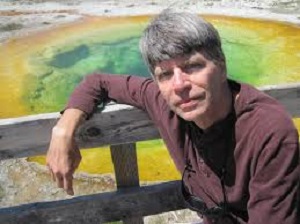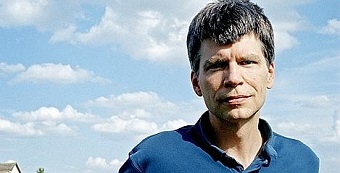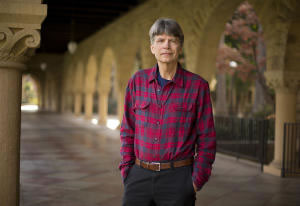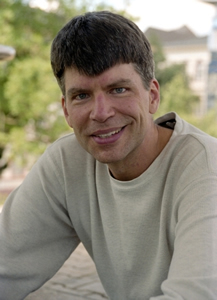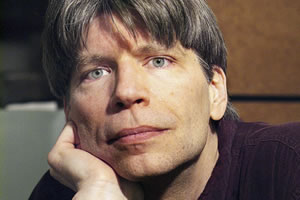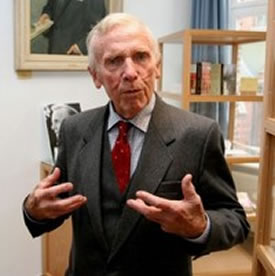De Amerikaanse schrijver Richard Powers werd geboren op 18 juni 1957 in Evanston, Illinois. Zie ook alle tags voor Richard Powers op dit blog.
Uit: Generosity: An Enhancement
“Say that the six thousand years of writing are a six-hundred-page novel, suitable for getting you through the longest captive flight. Romance, mystery, thriller: a little something for everyone. At a decade a page, it’s a slow starter. Only belatedly does the opening hook—secret marks that hurl meaning magically through time and space—reveal itself to be a Trojan horse. By page 200, memory is embalmed beyond recognition, lamented only when anyone still notices it’s gone. If a thing isn’t written down, you can forget about it. The rest is history.
The plot starts to pick up on page 350. After a ridiculously long exposition, the development section starts at last. Characters emerge, cities clashing in the freshness of youth, driven by the varied needs of their patron gods. Wars spread and trade expands. The characters harden and age. They join together into sprawling clans. Freed from the present, papyrus starts to spawn new subplots. By page 400, the basic conflict becomes clear: preservers against revisers, sufficers against maximizers, those who think the book is coming apart versus those who think it’s coming together.
There are a few longueurs for some readers in the middle two-thirds. But this is when the story is at its most desperate: when techne and sophia are still kin, when the distant climax is still ambiguous, the outcome a dead heat between salvation and ruin.
Page 575 starts a series of quick reveals (although each one foreshadowed, early on). Every discovery triggers two more. The cast of characters explodes, as do the sudden reverses. The book makes one of those massive finish-line sprints—twenty-five pages to wrap up all the lingering plot points and force a denouement. The last chapter is filled with deus ex machinas, and on the very final page, the very last paragraph, the characters throw off the limits of the Story So Far and complete their revolt. The ultimate sentence is a direct quote—“Author, we’re outta here”—the happy ending of the race’s own making.”
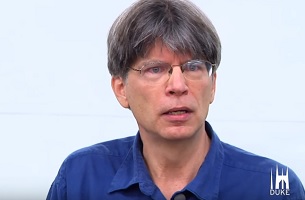
De Nederlandse dichteres en beeldend kunstenares Marije Langelaar werd geboren op 18 juni 1978 in Goes. Zie ook alle tags voor Marije Langelaar op dit blog.
Hert
En ik kijk naar mijzelf.
Voel mijn benen zich verdunnen en draaien
onmiddellijk volgen mijn armen het groeien van hoefjes
ik stap uit mijn jurk en mijn hemd inmiddels te groot en
voel mijn vacht in de wind
mijn oren richten zich zetten uit en ik
luister naar het kletteren van borden ver in de keuken
het waaien van gras
ik hoef inmiddels niets meer.
Zo als hert heb ik dorst niets dan dorst en
beweeg naar het water.
Park
Want er valt weinig te verwachten
van een vijver
dacht hij
terwijl hij op een zondagmiddag
op een bankje in de schaduw zat
En bleef de rest van de middag een peinzende
introverte gestalte die niemand groet
hij zag een man passeren
hij zag een man met hond passeren
hij zag een man met vrouw passeren
Toen is hij naar de vijver gelopen
en heeft het glanzende oppervlak doorboord
met zijn laarzen
hij heeft het rondgejaagd met de schoolslag
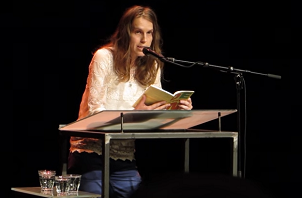
De Franse schrijver Raymond Radiguet werd geboren op 18 juni 1903 in Saint-Maur-des-Fossés. Zie ook alle tags voor Raymond Radiguet op dit blog.
Uit: Le diable au corps
« Certes, j’éprouvais cet étrange besoin plus vivement que mes frères. J’aimais que mon cœur batte plus vite et irrégulièrement. Ce spectacle, d’une poésie profonde, me satisfaisait davantage. « Comme tu es pâle », avait dit ma mère. Je trouvai le prétexte des feux de Bengale. Ils me donnaient, dis-je, une couleur verte.
– Je crains tout de même que cela l’impressionne trop, dit-elle à mon père.
– Oh, répondit-il, personne n’est plus insensible. Il peut regarder n’importe quoi, sauf un lapin qu’on écorche.
Mon père disait cela pour que je restasse. Mais il savait que ce spectacle me bouleversait. Je sentais qu’il le bouleversait aussi. Je lui demandai de me prendre sur ses épaules pour mieux voir. En réalité, j’allais m’évanouir, mes jambes ne me portaient plus.
Maintenant, on ne comptait qu’une vingtaine de personnes. Nous entendîmes les clairons. C’était la retraite aux flambeaux.
Cent torches éclairaient soudain la folle, comme, après la lumière douce des rampes, le magnésium éclate pour photographier une nouvelle étoile. Alors, agitant ses mains en signe d’adieu, et croyant à la fin du monde, ou simplement qu’on allait la prendre, elle se jeta du toit, brisa la marquise dans sa chute, avec un fracas épouvantable, pour venir s’aplatir sur les marches de pierre. Jusqu’ici j’avais essayé de supporter tout, bien que mes oreilles tintassent et que le cœur me manquât. Mais quand j’entendis des gens crier : « Elle vit encore », je tombai, sans connaissance, des épaules de mon père.
Revenu à moi, il m’entraîna au bord de la Marne. Nous y restâmes très tard, en silence, allongés dans l’herbe.
Au retour, je crus voir derrière la grille une silhouette blanche, le fantôme de la bonne ! C’était le père Maréchaud en bonnet de coton, contemplant les dégâts, sa marquise, ses tuiles, ses pelouses, ses massifs, ses marches couvertes de sang, son prestige détruit.
Si j’insiste sur un tel épisode, c’est qu’il fait comprendre mieux que tout autre l’étrange période de la guerre, et combien, plus que le pittoresque, me frappait la poésie des choses.
Nous entendîmes le canon. On se battait près de Meaux. On racontait que des uhlans avaient été capturés près de Lagny, à quinze kilomètres de chez nous.”
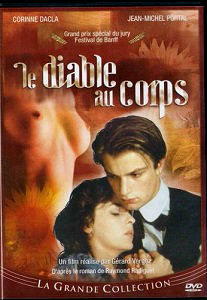
Cover DVD
De Engelse dichter Geoffrey Hill werd geboren op 18 juni 1932 in Bromsgrove, Worcestershire. Zie ook alle tags voor Geoffrey Hill op dit blog.
Funeral Music
3
They bespoke doomsday and they meant it by
God, their curved metal rimming the low ridge.
But few appearances are like this. Once
Every five hundred years a comet’s
Over-riding stillness might reveal men
In such array, livid and featureless,
With England crouched beastwise beneath it all.
‘Oh, that old northern business …’ A field
After battle utters its own sound
Which is like nothing on earth, but is earth.
Blindly the questing snail, vulnerable
Mole emerge, blindly we lie down, blindly
Among carnage the most delicate souls
Tup in their marriage-blood, gasping ‘Jesus’.
4
Let mind be more precious than soul; it will not
Endure. Soul grasps its price, begs its own peace,
Settles with tears and sweat, is possibly
Indestructible. That I can believe.
Though I would scorn the mere instinct of faith,
Expediency of assent, if I dared,
What I dare not is a waste history
Or void rule. Averroes, old heathen,
If only you had been right, if Intellect
Itself were absolute law, sufficient grace,
Our lives could be a myth of captivity
Which we might enter: an unpeopled region
Of ever new-fallen snow, a palace blazing
With perpetual silence as with torches.
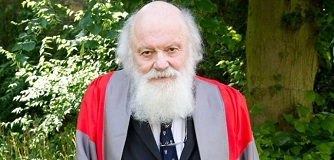
De Nederlandse schrijver en dichter Bert Schierbeek werd geboren op 18 juni 1918 in Glanerbrug in Twente. Zie ook alle tags voor Bert Schierbeek op dit blog.
Uit: Weerwerk (Fragment)
alleen nog dorst
beesten honger en dorst
ze slachten alles af
veel vlees
geen geld
(stapt op)
tot straks
(2 juli 1976)
’s middags hangen we samen in de boom en plukken kersen zit ik weer in de molen van Schiphoes in Beerta en zie de hele wereld wel van Wanschoten, Wedde tot Nieuweschans boven in de kap boven de houten tandwielen op de as van de wieken en zie Drieborg en Finsterwolde en wel heel het land in korengeel en grasgroen en de beesten en ook de mensen heel klein midden in het gele zinderende koren kleine zwarte vogels maaiend met hun armen in de gele massa tussen de groene weilanden en de bruine velden onder een kokende zon…
ze zichtten alles: tarwe rogge haver gerst
maar ook : paardebonen, erwten, blauwmaanzaad en ka-
nariezaad…
’t land was nog vol mensen
geen machine te zien
zegt Marcel
(vanuit de boom)
zie je die balk daar
in de schuur, die balk daaraan hing ie
mijn vader ook
als de mensen het hier niet meer weten
hangen ze zich op
altijd wel een paar
per jaar
soms ben je op tijd om ze los te snijden
dan komen ze bij en zeggen dagen lang niks
werken en zeggen niks
tot ze ’t weer doen
wie ’t eenmaal gedaan heeft
doet het weer
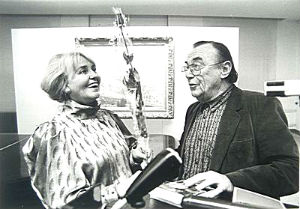
Hier met Stientje Buddingh’
De Duitse dichteres Karin Fellner werd geboren op 18 juni 1970 in München. Zie ook alle tags voor Karin Fellner op dit blog.
wo werner und co kampieren / sollen im frühjahr glas
bauten wachsen ein glanz / voller park industrie
zelte gezimmerte unter / stände die berber verdrängen
nachts heulen alle platten / hunde den mond an jagen
sich auf dem brachland treffen / zu ritualen zusammen
während der frost im nicht / geschnittenen gras liegt und blinkt
nach westen hin flechten sie tote / ranken in undichte büsche
sichtschutz daneben im schuppen / koten sie ist es trocken
unter der dachpappe auf / verfallenen balken und schutt
immer benötigen sie / holz geklaubt geklaut in
scheite zerbeilt zum heizen / für kartoffeln und kohl
manchmal hören sie gröhlen / winseln manchmal zielen
sie mit der zwille auf dosen / besuchen tommy vorne
bei den containern trinken / instantkaffee er erzählt
vom letzten messerstechen.
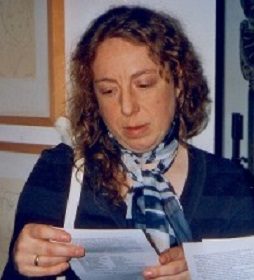
De Vlaamse schrijver Aster Berkhof (eig. Louis van den Bergh werd geboren in Rijkevorsel op 18 juni 1920. Zie ook alle tags voor Aster Berkhof op dit blog.
Uit: Veel geluk professor
“Hij was teruggehold naar zijn kamer, had er zich niets van aangetrokken dat zijn hospita, die hem vertrokken waande, druk in zijn lessenaar aan het snuffelen was, had de notities bijeengegrabbeld en in zijn binnenzak gestopt, en was juist op tijd gekomen om nog in de laatste wagen van de al rijdende trein te springen.
En nu was hij hier. En hij wenste professor Steinbach al het goede ter wereld, maar diep in zijn hart was hij hem in stilte hemels dankbaar, omdat hij op zo’n geschikt moment ziek geworden was en rector Schlesinger niet de minste kans meer gegeven had om een oudere, meer ervaren plaatsvervanger te zoeken.
Want het Instituut van lady Thompson, dat ondergebracht was in een oud kasteel, was wereldberoemd. Het werd bezocht door jonge aristocraten uit alle hoeken van de wereld, die in St.-Moritz aan wintersport kwamen doen en de voormiddag gebruikten om een beetje te studeren, en het werd zo rijkelijk gesubsidieerd, dat de professoren er in drie maanden tijd zoveel verdienden als in een heel jaar aan de universiteit. Daarom waren deze cursussen, die voor ieder professor slechts drie uur les per week omvatten en in feite voor hen niets anders betekenden dan een dikbetaalde vakantie in het mooiste vakantieoord van de wereld, bijzonder in trek, en werd er druk naar gesolliciteerd door de oudste en de beroemdste professoren van heel Europa.
Pierre had dus geen reden om rector Schlesinger dankbaar te zijn, want als de oude rekel, die sinds tien jaar het Instituut patroneerde, erbuiten gekund had, zou hij hem, Pierre, nooit dit buitenkansje gegund hebben. Hij zou naar Zürich of naar Parijs of naar Londen geschreven hebben, om er een oude, vergrijsde geleerde op te delven, die met zijn naam het Instituut meer luister zou bijzetten.
Maar Pierre trok zich daar niets van aan. Hij was alleen maar blij, en fier, en gelukkig, en het vooruitzicht op deze drie maanden vakantie hier in de besneeuwde bergen, met zijn zakken vol geld en niets aan de kop dan een paar lesuurtjes die hij niet eens moest voorbereiden, was zo mooi en zo bedwelmend heerlijk, dat hij op niemand meer boos kon zijn.”
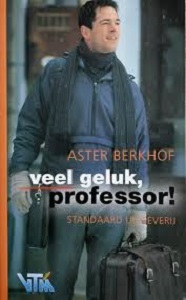
De Duitse schrijfster en vertaalster Mirjam Pressler werd geboren op 18 juni 1940 in Darmstadt. Zie ook alle tags voor Mirjam Pressler op dit blog. Mirjam Pressler is op 16 januari jongstleden op 78-jarige leeftijd gestorven.
Uit: Nathan und seine Kinder
„Ich muss unter dein Maulbeerbaum eingeschlafen sein, wo ich mich am späten Nachmittag, ah die Hitze uneruliglich wurde, zum Ausruhen hingelegt hatte, denn ich wurde von Schreien geweckt. Es waren hohe, schrille Schreie. und ich hob unwillkürlich die Hände. um meine Ohren zu schützen. Erst verstand ich nicht, dass es ein Mensch war. der da schrie. Doch dann sah ich sie. Daja. die Herrin. wie sie sich drehre und wand und versuchte, sich aus dem Griff der Köchin zu befreien, ich sah ihr verzerrtes Gesicht und den aufgerissenen Mund. dt.calais, schrie sie. »Rec.hal Rechak Doch 7.ipora und eine Magd hielten sie fest und lockerten den Griff auch nicht, als Daja wie wild um sich schlug und schrie: *Lasst mich los, ich muss zu Recha! Nathan ist nicht da! Gott steh uns bei, wenn Recha etwas passiert.« Ihre Schreie übertönten das Prasseln der Flammen. Ich wollte aufspringen. ich wollte mich in die Flammen stürzen, ich wollte der tapfere Held sein, der die Tochter des Herrn rettet, ich, ich, ich! Das war die Gelegenheit, die Gott mir bot. Gott oder Allah, uni meinen Mut zu beweisen. Alle sollten es erfahren, vor allein er, Nathan, der Herr, dass ich mehr war als nur ein armseliger Krüppel. Aber die Hitze des Feuers drang bis zu meinem Platz unter dein Maulbeerbaum, und in meinem Körper brach der altbekannte Schmerz auf, ein stechender Schmerz, der mir von der linken Seite durch den ganzen Körper fuhr. Ein Schmerz, den ich eigentlich nicht fühlen durfte, denn längst vernarbte Wunden schmer-zen nicht mehr, warum taten es meine dennoch? Ich kauerte unter dem Maulbeerbaum und harte nur einen Gedanken: Ich muss die Herrin herausholen, ihr Vater ist nicht da, es ist meine Pflicht, sie zu retten. Aber als ich aufspringen wollte, gehorchte mir mein Körper nicht, die Narben brannten, mein linker Arm und mein linkes Bein krümmten sich, wie sich verkohlende Äste im Feuer krüm-men, sie wurden steif und unbeweglich. Das Hundezahngras zerkratzte meine Haut, als ich anfing zu kriechen. Rauch drang nur in Nase und Mund, meine Augen brannten und ein schrecklicher Husten schüttelte meinen Körper.“
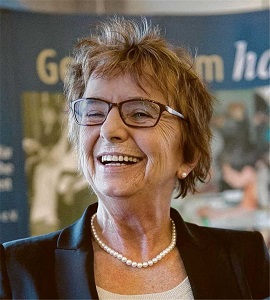
De Russische schrijver Ivan Aleksandrovitsj Gontsjarov werd geboren op 18 juni 1812 in Simbirsk als zoon van een graanhandelaar. Zie alle tags voor Ivan Gontsjarov op dit blog.
Uit: Oblomov (Vertaald door David Magarshack)
“The pictures, vases, and knick-knacks were equally shoddy. The owner himself, however, was so utterly indifferent to the furniture of his study that he seemed to be wondering who on earth could have dumped all that junk there. It was Oblomov’s indifference to his own property, and perhaps even still more the utter indifference shown by his servant Zakhar, that made the study look, on closer inspection, so neglected and untidy. Dust-covered cobwebs were festooned round the pictures on the walls; instead of reflecting the objects in the room, the mirrors were more like tablets which might be used for writing memoranda on in the dust. The rugs were covered in stains. A towel had been left on the sofa; almost every morning a dirty plate, with a salt-cellar and a bare bone from the previous night’s supper, could be seen on the table, which was strewn with crumbs. If it had not been for this plate and a freshly smoked pipe by the bed, or the owner of the flat himself lying in it, one might have thought that no one lived there — everything was so dusty and faded and void of all living traces of human habitation. It is true there were two or three open books and a newspaper on the book-stands, an inkwell with pens on the bureau; but the open pages had turned yellow and were covered with dust — it was clear that they had been left like that for a long, long time; the newspaper bore last year’s date, and if one were to dip a pen in the inkwell, a startled fly was as likely as not to come buzzing out of it. Oblomov, contrary to his custom, had woken up very early —about eight o’clock. He looked very worried about something. The expression of his face kept changing continually from that of alarm to one of anguish and vexation. It was clear that he was in the throes of some inner struggle, and his reason had not yet come to his aid. What had happened was that on the previous evening Oblomov had received a disagreeable letter from the bailiff of his estate. The sort of disagreeable news a bailiff usually sends can be easily imagined: bad harvest, arrears of taxes due from the peasants, falling income, and so on.”
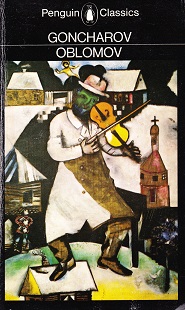
Cover
Zie voor nog meer schrijvers van de 18e juni ook mijn blog van 18 juni 2016 deel 2.

